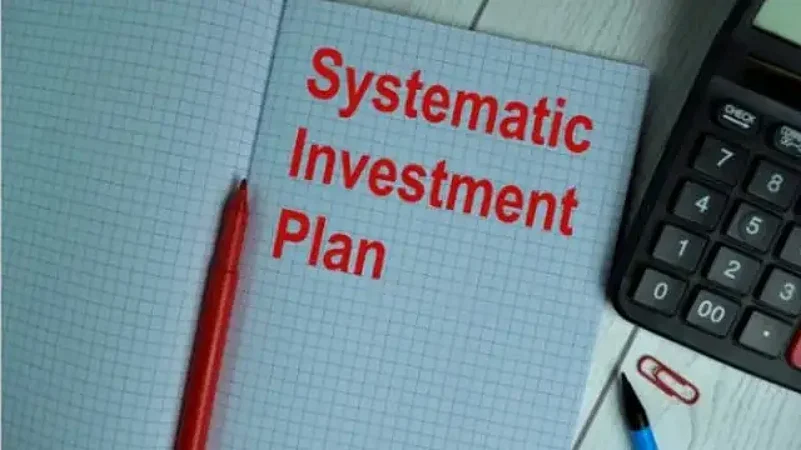Over the last few months, Foreign Portfolio Investors (FPIs) have unremittingly been on a selling spree in the Indian equity market. Cumulatively, they have net sold to the tune of around Rs 1.46 lakh crore since October 2021. The month of May does not seem to be offering much respite, and thus, it appears that the well-known adage, “Sell in May and Go Away,” may hold true this time around.
A strong greenback, central banks around the world increasing policy rates to counter high inflation, the rise in bond yields, geopolitical tension, and a surge in COVID-19 infections once again in many countries (given that the virus is mutating) are some are factors responsible for the outflow from equities.
Domestic mutual funds, on the other hand, have been persistent net buyers, making the most of the buying opportunities and exuding confidence in the long-term prospects of the Indian economy. In 2021, they net purchased worth Rs 44,780 crore after having net sold to the tune of Rs 59,833 crore, and this year, i.e., in calendar year 2022, they have net purchased over Rs 70,000 crore so far.
That being said, investors seem concerned about the amplified volatility in the Indian equity markets. In April 2022, the net inflows into equity mutual funds slowed by 44 per cent in comparison with the previous month to Rs 15,890 crore.
Table: Net inflow into open-ended equity funds were flat (Rs in crore)
Open-ended Equity Oriented Schemes |
Oct-21
Nov-21
Dec-21
Jan-22
Feb-22
Mar-22
Apr-22
Multi-Cap Fund
338
348
10516
891
585
9695
1340
Large-Cap Fund
747
1625
1578
1890
2339
3052
1259
Large- and Mid- Cap Fund
643
1225
1635
1723
2035
3165
2050
Mid-Cap Fund
376
1280
1679
1770
1954
2193
1550
Small-Cap Fund
349
782
1053
1498
1430
1696
1717
Dividend Yield Fund
46
54
39
60
157
50
94
Value Fund/Contra Fund
-349
439
330
-163
837
770
744
Focused Fund
696
1507
1549
1813
1955
2310
1278
Sectoral/Thematic Fund
1734
1522
3770
2073
3441
307
3844
ELSS
-488
174
519
805
1098
2676
307
Flexi-Cap
1122
2660
2409
2527
3873
2549
1709
Total
5,215
11,615
25,077
14,888
19,705
28,463
15,890
Data as of April 2022 (Source: AMFI)
Plus, the collections through systematic investment plans (SIPs) also slowed to Rs 11,863 crore in April 2022 from Rs 12,328 crore in the previous month.
In my view, as an investor, you should not be worried about the daily volatility of the Indian equity market. Just because the markets have turned volatile, do not stop investing; rather, stagger your investment and keep making regular investments. If Indian equity markets witness a sell-off, use it as an opportunity to invest more ––it may serve to be a meaningful strategy in the long run.
When you are planning for financial goal/s and have ongoing SIPs, avoid committing the grave mistake of stopping or discontinuing SIPs if you are investing in some of the best mutual fund schemes. Doing so will apply brakes to the process of compounding, and then accomplishing the envisioned goal may remain only a distant dream.
In volatile market conditions, as we are witnessing currently, you would be able to navigate the volatility better with the inherent rupee-cost averaging feature of SIPs. Similarly, when markets remain flat or correct, SIPs will work to your advantage. Hence, focus on ‘time in the market’ (and not on timing the market) by aligning SIPs well with the financial goal/s you wish to achieve. When the markets begin to ascend once again, your investments in equity mutual funds would potentially reward you well.

You should take the decision to sell your mutual funds only when.
- You are not holding some of the best mutual fund schemes (resulting in underperformance of your investment portfolio).
- There are better alternate schemes available.
- Your risk profile has altered.
- Your asset allocation warrants a change, and therefore, the portfolio needs review and rebalancing.
- You wish to change the investment style of your portfolio.
- When the fundamental attributes of the scheme have changed since the time you first invested, and it is no longer suitable for your risk profile and investment objective today.
- You have achieved the envisioned financial goal/s.
Furthermore, as far as possible, keep away from redeeming your mutual funds to address your contingency needs, particularly from schemes that are among the best-performing ones, and have been assigned for your financial goals. To meet your contingency needs, utilise the money kept in a savings account and/or liquid fund.
“To invest successfully over a lifetime does not require a stratospheric IQ, unusual business insights, or inside information. What's needed is a sound intellectual framework for making decisions and the ability to keep emotions from corroding that framework." remember these pearls of wisdom from the book "The Intelligent Investor" by Benjamin Graham, the father of value investing.
Happy Investing!
The author is managing director and CEO, Quantum AMC
(Disclaimer: Views expressed are the author’s own, and Outlook Money does not necessarily subscribe to them. Outlook Money shall not be responsible for any damage caused to any person/organisation directly or indirectly.)



























